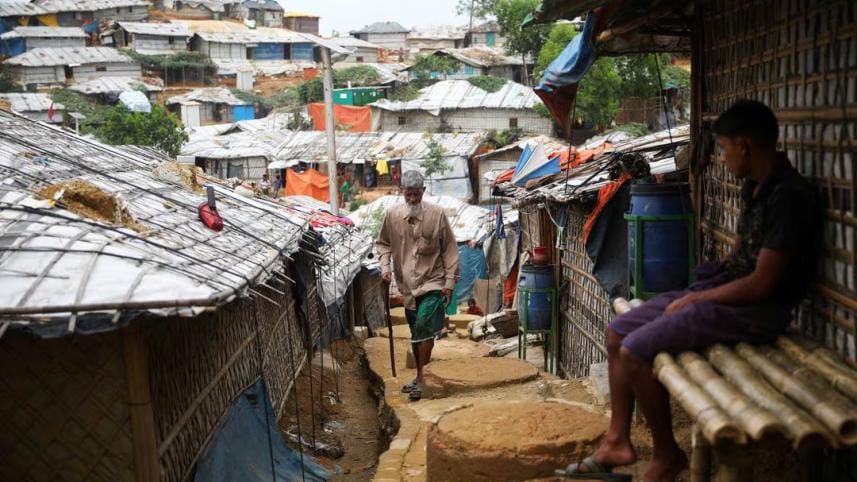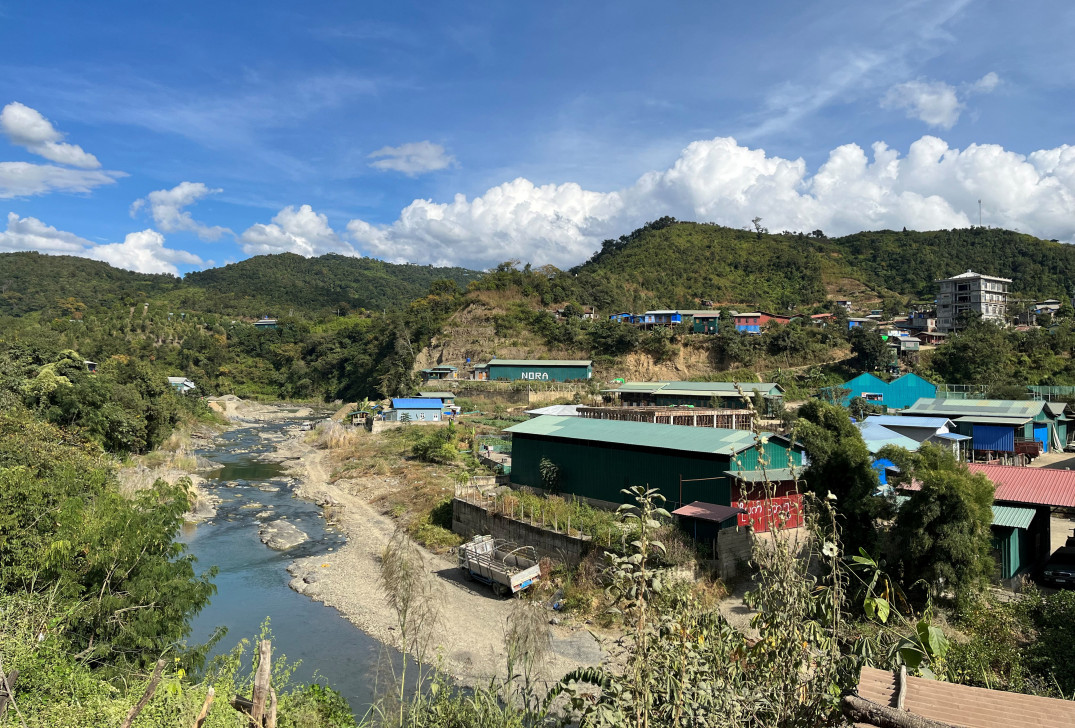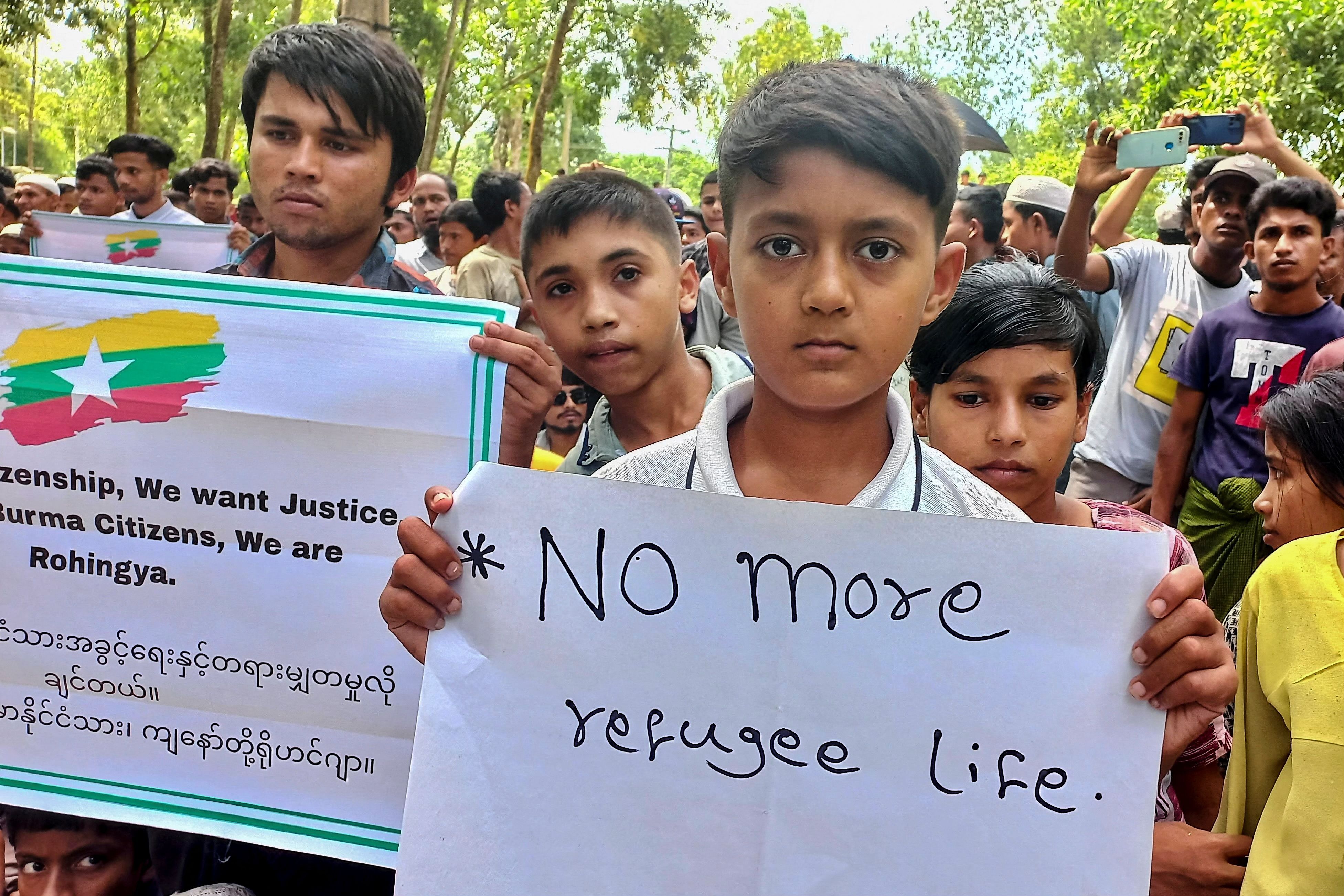How will Bangladesh keep on sheltering the Rohingya?

Every year, the ill-fated Rohingya refugees in Bangladeshi camps have to wait for the new Joint Response Plan (JRP) through which their annual allocation of funding is raised. The 2024 JRP seeks $872.7 million to support one million Rohingya refugees and 300,000 vulnerable host communities living in Ukhiya and Teknaf upazilas.
In the last JRP, the annual funding requirement was $875.9 million, of which 50 percent remained unmet (as of February 8, 2024). Due to fund shortages, the World Food Programme (WFP), in June last year, cut its monthly food rations for the Rohingya refugees from $10 to $8 per person.
Moreover, the World Bank (WB) and Asian Development Bank (ADB) are progressively tightening their financial support, creating a significant challenge for Bangladesh. The country now finds itself in a desperate situation. The diminishing funds allocated for the Rohingya crisis are placing an immense financial burden on Bangladesh, forcing the country to resort to borrowing for the refugees' well-being.
In a groundbreaking move in December, Bangladesh sought a $1 billion loan from the WB and ADB—a financial package consisting of $535 million in loans and $465 million in grants. On January 23, WB Country Director Abdoulaye Seck expressed interest in disbursing an additional $700 million in the form of both a grant and soft loan to Foreign Minister Hasan Mahmud. This funding is earmarked to support crucial socioeconomic development initiatives for both the Rohingya population and the adversely affected host communities.
In an immediate reaction, Transparency International Bangladesh (TIB) stated that relying on foreign loans is not a just, prudent, or enduring strategy to address the Rohingya crisis. The statement conveyed profound apprehension at the government's apparent choice and asked it to engage in negotiations with the WB and ADB to obtain a grant instead. Furthermore, it called upon the international community to ensure a just and equitable distribution of the responsibilities associated with this crisis driven by persecution.
In light of the insufficient grants in the Joint Response Plan to comprehensively address the Rohingya crisis, a dual strategy can be adopted: maximising humanitarian aid collection and focusing concerted efforts on the repatriation process. This approach aims not only to alleviate the immediate financial strain but also to ensure a sustainable and effective resolution to the crisis.
In 2023, Bangladesh planned to repatriate an initial group of 1,140 Rohingya refugees to Myanmar under the Pilot Repatriation Project by the end of the year. However, the escalation of conflict in Myanmar caused that plan to stall; thus, the repatriation process is still in limbo.
Meanwhile, conditions in the Rohingya camps are steadily deteriorating. Criminal activities, including killings, drug peddling and extortion, have become commonplace. The pervasive frustration and lack of employment opportunities make the Rohingya population increasingly susceptible to unlawful activities. Plus, the absence of proper education, recreational facilities, and a conducive environment has led some children to become involved in various juvenile offences. If repatriation efforts fail, Bangladesh not only faces financial constraints but also the looming threat of a security lapse for the nation.
The situation in Rakhine state is tense, with ongoing conflicts between the Arakan Army and the Tatmadaw offering no clear solution. Sustaining the livelihoods of more than 1.2 million Rohingya poses a monumental challenge for Bangladesh.
Nazifa Nawar is a researcher and columnist.
Views expressed in this article are the author's own.
Follow The Daily Star Opinion on Facebook for the latest opinions, commentaries and analyses by experts and professionals. To contribute your article or letter to The Daily Star Opinion, see our guidelines for submission.



 For all latest news, follow The Daily Star's Google News channel.
For all latest news, follow The Daily Star's Google News channel. 

Comments